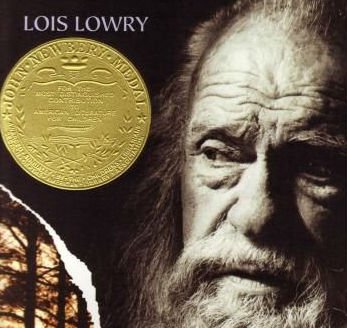
When I was a kid, I had a series of discussions with my dad about some amazing books I had read, including some in the list below. I described for him in detail the strange, dystopian worlds I had been reading about, and expressed dismay and indignation at the horrific totalitarian societies my beloved characters were forced to endure and fight.
Dad was a Republican, but a libertarian-leaning one. He might have been an anarchist himself, if he'd been born a little later. He shared (and probably taught me) my love of dystopian fiction and my distrust of authority. During our book discussions, he would weave in true stories and accounts of oppressive regimes that actually existed in the real world. Using the socratic method, he instructed me on geography, politics, economics, and history during these conversations, but I never noticed that was what he was doing. My mind was blown. This stuff could actually happen? People could really behave this way, outside of the pages of a book? There were actually people dumb enough, gullible enough, to support psychopathic dictators on their ride to power? Or to give up their property, liberty, even their individual identities, to "benefit" a collective that only devoured all resources and destroyed everything good as it gained momentum?
For my birthday that year, Dad gave me a copy of 1984 by George Orwell. It might have been a bit dark for a 12-year-old, but I was hooked. After I finished it, he recommended Brave New World by Aldous Huxley, Slaughterhouse Five by Kurt Vonnegut, and several other science fiction dystopias that would form the literary foundation of my lifelong antiauthoritarianism.
Now, I am a mother. In facilitating my daughter's education (we homeschool), my most important goals for her are that she learn to think for herself, reject artificial authority, and understand the dynamic between freedom and responsibility. So it is not enough that I tell her "government is inept" and "democracy is mob rule" and "taxation is theft". She needs to develop an understanding of these things, independent of her trust that what I tell her is the truth.
In this case, I am the authority, and I want her to question me. I want her to read widely and consider differing views and opinions, instead of parroting what I say or blindly following my beliefs. So I don't limit her intake of ideas. I don't restrict her reading to only those books that support my narrative, or try to shield her from movies that paint a "big brother is your friend" picture of how civilization works.
But I do slip certain books in the pile, or queue them up on the audiobook app, or offer to read them to her at bedtime. This is how I make sure she's exposed to great literature that speaks truth to power, that highlights individualism, that demonstrates the dangers of forced collectivism.
Some of the books in this list are, without a doubt, libertarian works. Others are very popular books for children or young adults that, while they may not support a wholly libertarian worldview, do feature important threads of story that beautifully illustrate certain libertarian themes. I like to discuss these themes with my daughter, and question what the author got right or wrong in the story.
1. The Giver
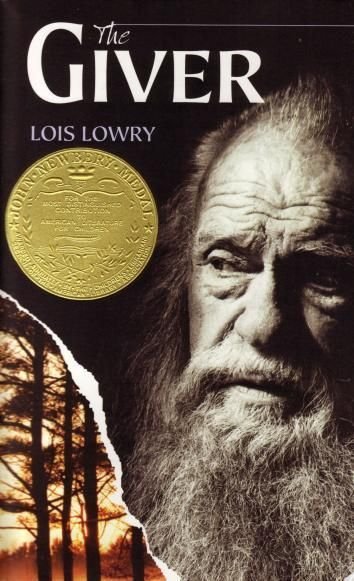
In this classic sci fi dystopia by Lois Lowry, a boy must come to terms with the dark reality of the "perfect", engineered society in which he lives. Is it okay to artificially dull the emotions of an entire populace if, by doing so, you can bring lasting peace? Is it moral to euthanize the elderly and the frail, in order to maintain the illusion of a happy, healthy, and strong society? Can people whose lives are preordained by government, down to who they can marry and what jobs they must do, ever perform a truly independent action, or have a truly free thought? Grapple with these questions and more as you read this gripping novel with your kids.
2. A Wrinkle in Time

This short novel by Madeleine L'Engle is at once whimsical and powerful. In it, a brother and sister must travel to another planet in another dimension to save their father from a totalitarian, mind-controlling force that threatens to overtake the whole universe. This book does a really great job of illustrating why imperfect individualism will always be better than enforced conformity.
3. The Lord of the Rings Trilogy
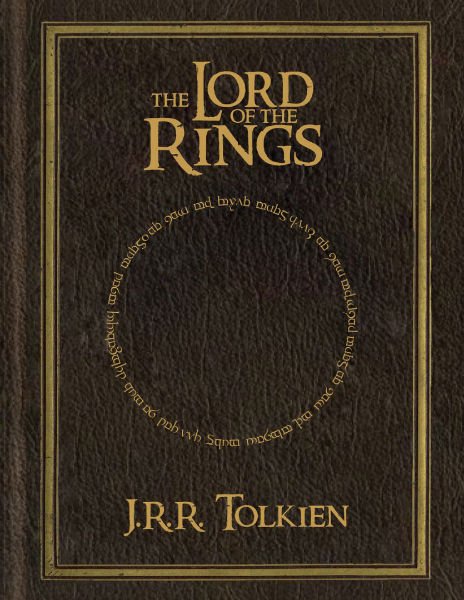
J.R.R. Tolkien may have been an anarchist himself. At least, he insinuated as much in letters to his son. In the Lord of the Rings, a group of hobbits venture away from their home in the Shire (a delightful, probably anarchist society) to destroy the ring of power and save Middle Earth from the encroaching forces of Lord Sauron, a magically evil tyrant. On the way, they make friends and form alliances with elves, dwarves, and men--three groups that have historically been at odds. All of Middle Earth's creatures must unite to defeat the grim reign of Sauron.
Of course, this trilogy is a must-read for anyone who enjoys fantastical fiction, and chances are, you've probably read it yourself. Or at least seen Peter Jackson's cinematic treatment (the best movie version of a classic book EVER.) And there are obviously strong themes of liberty and anti-statism running throughout. But to dig deeper with your child, you'll want to discuss where Tolkien's epic went wrong. Will Aragorn really be a good king? Is it even possible to be a good king? Will the return of the king to Minas Tirith really mean the return of peace to Gondor? How long can that peace last?
4. The Little House Books

More classics! These books by Laura Ingalls Wilder deserve their spot on this list mainly due to their strong themes of self-reliance. (It's no surprise that self-reliance is such a big focus in this series. It's a little-known fact that the Little House books were ghost-written by Laura's daughter, Rose Wilder Lane, who is one of the three celebrated "mothers of libertarianism"!) These books are a great read for any age.
5. Red Scarf Girl
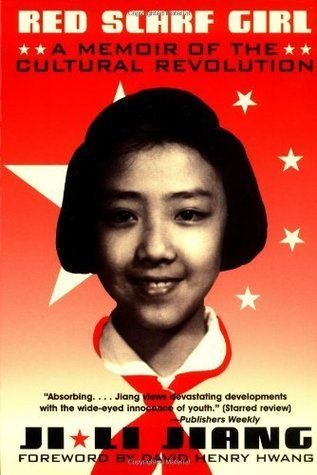
I just finished reading this autobiography to my daughter, and holy shit, living in China during the Cultural Revolution was absolutely terrifying.
Jiang Ji-Li, a girl growing up in Shanghai, thinks her life is perfect. She lives with her loving family in a one-room apartment with its own bathroom. She is smart and well-liked at school, and knows that her country will always strive for even greater strength and equality under the revolutionary guidance of her beloved Chairman Mao. But then the Cultural Revolution begins. Soon, Ji-Li's life is in turmoil due to the fact that her grandfather (who died many years ago) was a landlord--an enemy of the revolution. Ji-Li is not allowed to attain her dream of becoming a red guard. Her family's apartment is raided for evidence of counterrevolutionary activity. Her mother and father face censure at work, and even Ji-Li's friends at school turn against her. The story culminates in an unimaginable choice for Ji-Li: the revolution requires her to testify against her father at a public shaming session, and to break with her rightist family once and for all. If she does this, she can be assured of a good political reputation, and good prospects for her future. If she chooses not to betray her family, she will be punished, marked as a counterrevolutionary for the rest of her life.
If you want your kids to really comprehend what it means to cede freedom to the state in exchange for forced equality, and learn some history while they're at it, get them this book!
6. Heidi

Here's a book you might not expect to find on a list of books for anarchist kids. But it belongs. The author, Johanna Spyri, was a woman who valued individualism and independence in children at a time when the prevailing attitude was that children should be seen and not heard. This is a sweet novel that explores themes of family, love, freedom in education, neighborliness, and self-reliance.
7. The Harry Potter Series

Okay, so J.K. Rowling is by no means an anarchist, and the world of Harry Potter is not in any way an anarchist utopia. But these are great books. The coolest part about them is the settings, in which even the smallest details are made real for the reader. The characters are highly relateable, and the magical world of Hogwarts is just plain fun. But there is also a distinctly antiauthoritarian sentiment woven through the series, that grows stronger and stronger as the story progresses. In the final three books, this sentiment becomes the driving theme of the narrative, as Harry and his friends must fight the rise of the evil, psychopathic tyrant, Voldemort, while their plans are thwarted at every turn by the well-meaning ineptitude and convoluted rules of the Ministry of Magic. These books are especially fun to read aloud with your kids, and to discuss afterwards.
8. Soft Rain
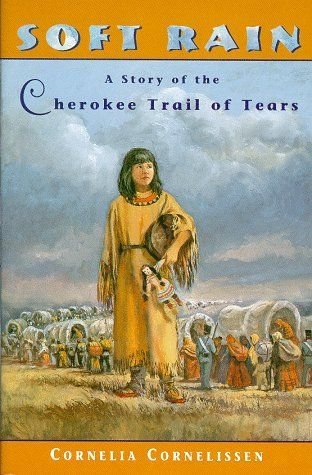
Novels about real historical events can be a great source of fuel for your child's fire of dissent. Unlike with history textbooks, novels allow you to get inside the historical event, to see what people actually saw and feel what people actually felt. Soft Rain is a fictionalized account of one Cherokee family's displacement from their ancestral lands to a government reservation on the Trail of Tears. In its pages, you will encounter the four biggest enemies of freedom: People who think "it can't happen to me"; Soldiers who are "only doing their jobs", People who fear other cultures and ways of life just because they're different; and Bystanders who watch sadly as others are oppressed, but don't do anything because "I'm only one person".
9. The Adventures of Jonathan Gullible
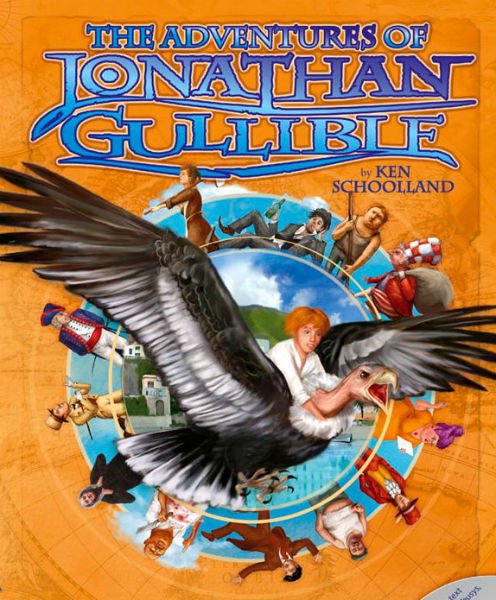
This book is both a satirical novel and a textbook on economics and the principles of liberty. The protagonist, Jonathan Gullible, travels through a foreign land where people do things that just don't make sense. He encounters a tragedy of the commons, meets the food police, attends the special interest carnival, and finally must go before the Grand Inquirer, who will decide his punishment for trying to bring sense to this strange land. This book has big, colorful illustrations, and it's a lot of fun. The economic and political concepts it introduces are probably more digestible for the 10-and-up range, but younger kids will enjoy the story and pictures and be able to skim some good lessons off the top.
